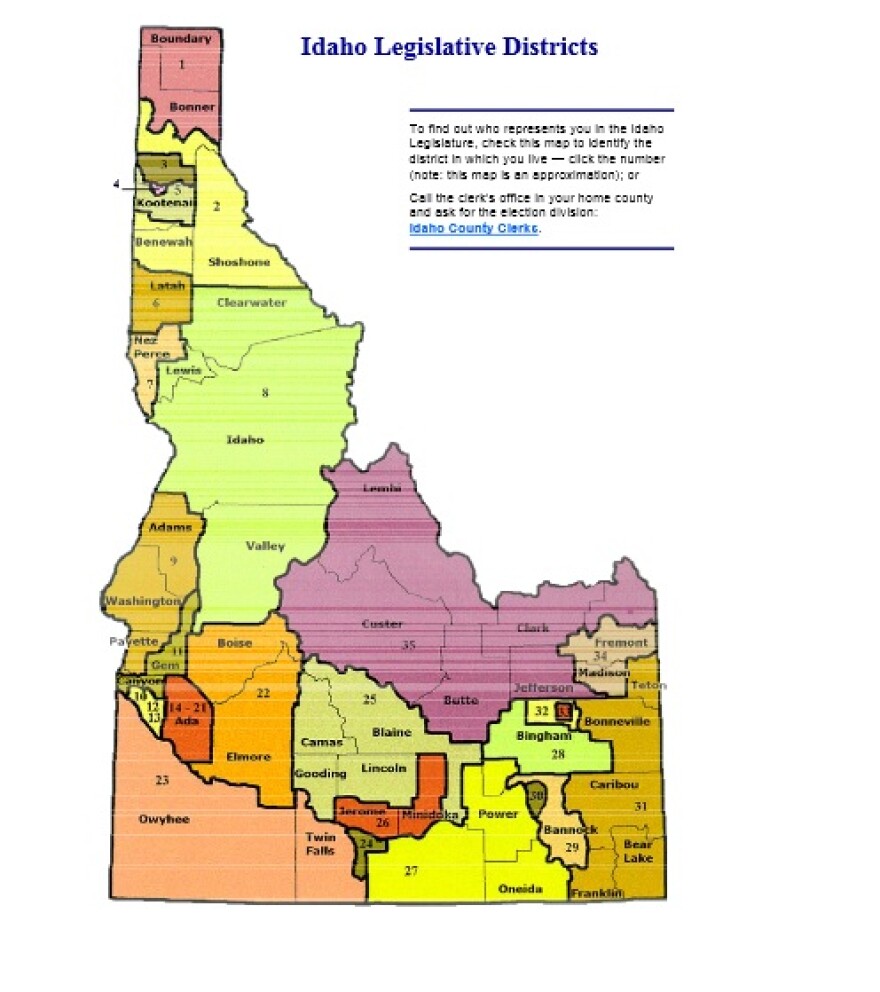Friday a group of Idaho senators hears from the public on a proposal to change how referenda and initiatives get on the ballot. This comes a few months after Idaho voters overturned education laws through the referendum process.
It takes 6 percent of eligible voters in Idaho to get an initiative on the ballot. The Idaho Farm Bureau wants that to be 6 percent of voters in 18 of the state’s 35 legislative districts. Spokesman John Thompson says the Farm Bureau has wanted this change for years and calls it a preemptive move.
“We’ve seen this in several other states. Humane Society of the United States and other large nongovernmental entities support initiatives that put restraints on agriculture,” he says. “And from the perspective of those organizations they have no reason in a state like Idaho to ever leave Treasure Valley”
That’s because more than a third of Idaho’s population lives in Ada and Canyon Counties. So you don’t have to travel far to get more than 6 percent of voters.
Thompson says the Farm Bureau bill would protect rural Idahoans from being dominated by the growing urban population. But Monika Hopkins with ACLU of Idaho disagrees.
“What that says to me is that the people who live in Boise should have their signatures count less than anyone else in the rest of the state,” Hopkins says adding each signature should be considered equally. “And then once it gets to the ballot people have the right to vote in support or opposition.”
More than a decade ago the Farm Bureau supported another law that required signatures from half of the state’s counties to get something on the ballot. In 2003 a U.S. Court of appeals tossed it out saying it violated the one person one vote principal because it gave counties with small populations as much say as the big ones. The case was known as Idaho Coalition United for Bears v. Cenarrusa.
The new proposal is based on legislative districts which are roughly equal in population. But Thompson says it will make it harder to put any initiative on the ballot. But that’s the idea when it comes to the out of state groups he fears want to restrict Idaho farming practices.
“If any of these NGOs come in here they’ve got big budgets, they’ve got millions of dollars to spend,” He says. “And requiring them to go to Challis and talk to people there doesn’t hurt my feelings one bit.”
Hopkins calls the proposal overly burdensome and says it inhibits the ability of individuals to participate in the initiative process. That she says violates equal protection under the law.
Geographic requirements on initiatives aren’t unusual. Four of Idaho’s neighbors have them. Nevada uses congressional districts. Wyoming uses counties, while Utah and Montana use legislative districts.
Copyright 2013 Boise State Public Radio


